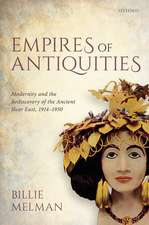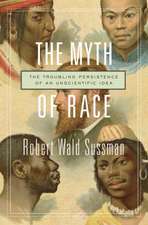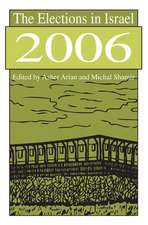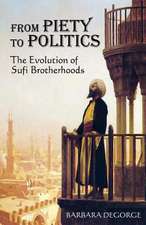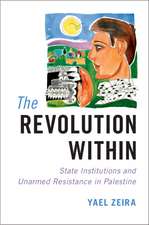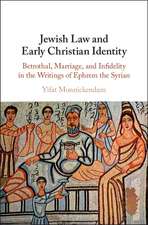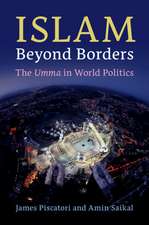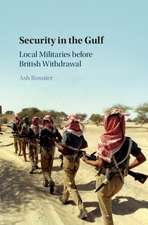The Hundred Years' War on Palestine: The New York Times Bestseller
Autor Rashid I. Khalidien Limba Engleză Paperback – 2 sep 2020
THE NEW YORK TIMES BESTSELLERShortlisted for the 2020 Cundill History Prize'Riveting and original ... a work enriched by solid scholarship, vivid personal experience, and acute appreciation of the concerns and aspirations of the contending parties in this deeply unequal conflict ' Noam ChomskyThe twentieth century for Palestine and the Palestinians has been a century of denial: denial of statehood, denial of nationhood and denial of history. The Hundred Years War on Palestine is Rashid Khalidi's powerful response. Drawing on his family archives, he reclaims the fundamental right of any people: to narrate their history on their own terms. Beginning in the final days of the Ottoman Empire, Khalidi reveals nascent Palestinian nationalism and the broad recognition by the early Zionists of the colonial nature of their project. These ideas and their echoes defend Nakba - the Palestinian term for the establishment of the state of Israel - the cession of the West Bank and Gaza to Jordan and Egypt, the Six Day War and the occupation. Moving through these critical moments, Khalidi interweaves the voices of journalists, poets and resistance leaders with his own accounts as a child of a UN official and a resident of Beirut during the 1982 seige. The result is a profoundly moving account of a hundred-year-long war of occupation, dispossession and colonialisation.
Preț: 64.12 lei
Preț vechi: 76.31 lei
-16% Nou
12.27€ • 12.76$ • 10.13£
Carte disponibilă
Livrare economică 24 martie-07 aprilie
Livrare express 08-14 martie pentru 33.43 lei
Specificații
ISBN-10: 1781259348
Pagini: 336
Ilustrații: Maps and b&w photos
Dimensiuni: 128 x 202 x 24 mm
Greutate: 0.27 kg
Ediția:Main
Editura: Profile
Colecția Profile Books
Locul publicării:London, United Kingdom
Notă biografică
Professor Rashid I. Khalidi is a Palestinian-American historian and the Edward Said professor of Modern Arab Studies at Columbia University and the co-editor of the Journal of Palestine. His previous books include Palestinian Identity, the Iron Cage, and Brokers of Deceit.
Recenzii
There are precious few English-language histories of Palestine, and this is the latest, drawing on Khalidi's family archives and experiences as an activist and peace negotiator. This cogent and compelling Palestinian perspective is long overdue
The best book to appear on the struggle for Palestine. It is masterpiece and a milestone in modern scholarship on the Arab-Israeli conflict ... a must read
This is the first true people's history of the hundred year struggle of the Indigenous Palestinian people, resisting and surviving Anglo imperialism and Israeli state colonization, taking a page from the United States' colonization of the Indigenous of North America. In historian Rashid Khalidi's hands, this is a beautifully written text, a tribute to the Palestinian people and a call for justice and self-determination
learned and clear-eyed ... a compelling summary of the long war to deny Palestinian rights [which] exposes the blunders, misjudgments, and willful deceptions that have denied Palestinians the rights that most of us take for granted. Highly recommended
A remarkable interweaving of three distinctive narratives. One is a deeply researched history of the past century of struggle between Zionist aspirations and Palestinian resistance. Newcomers and specialists alike will learn much from reading this sweeping account. Second is an analytical framework that places this conflict within the frame of settler colonialism, albeit a variant with its own special characteristics. Whether one agrees or not with this framing, Khalidi's analysis must be taken seriously and cannot be easily dismissed. Finally, there is the interweaving of a personal history -- his own and that of his family and friends -- which has the effect of making this otherwise sad historical narrative come alive with real people grappling with enormously challenging issues, but doing so with intelligence, determination, and a real concern for values of justice and equity. While Khalidi is an unapologetic supporter of national rights for Palestinians, he also recognizes, in his conclusions, that Zionism has succeeded in the past century in creating a strong Hebrew-based national movement in Palestine, and that the challenge for the future is for these two peoples who claim the same land to find a way toward a form of coexistence that is based firmly on equal rights and mutual recognition of legitimate claims to national identity,"
For those who want to learn about the course of the Israel-Palestine conflict up till now, and are open-minded: read this book. It comes over as a brilliant synthesis of high scholarship and experience, fair-minded despite its overtly Palestinian leanings, and highly readable. Americans and Israelis especially should read it, including the younger, more liberal ones, into whose hands the fates of both of the legitimate nations in this region must now pass. Please don't let this go on for another hundred years
informed and passionate
In this history that covers many angles and levels, Khalidi offers a work of the greatest importance, in which he rewrites the history of the war on Palestine from a novel colonial perspective, providing an account whose analysis and documentation are masterful in form, and whose organization and periodization are brilliant ... The importance of this major work, which will occupy a prominent place in the durable literature chronicling Palestinian history over a full century, lies in its unapologetic and dispassionate tone.
The Hundred Years' War is one of the best-researched general surveys of 20th and early 21st century Palestinian life, but it's also a deeply personal work. ...For a people whose history is all but criminalized, this act of retelling is itself a form of resistance.

